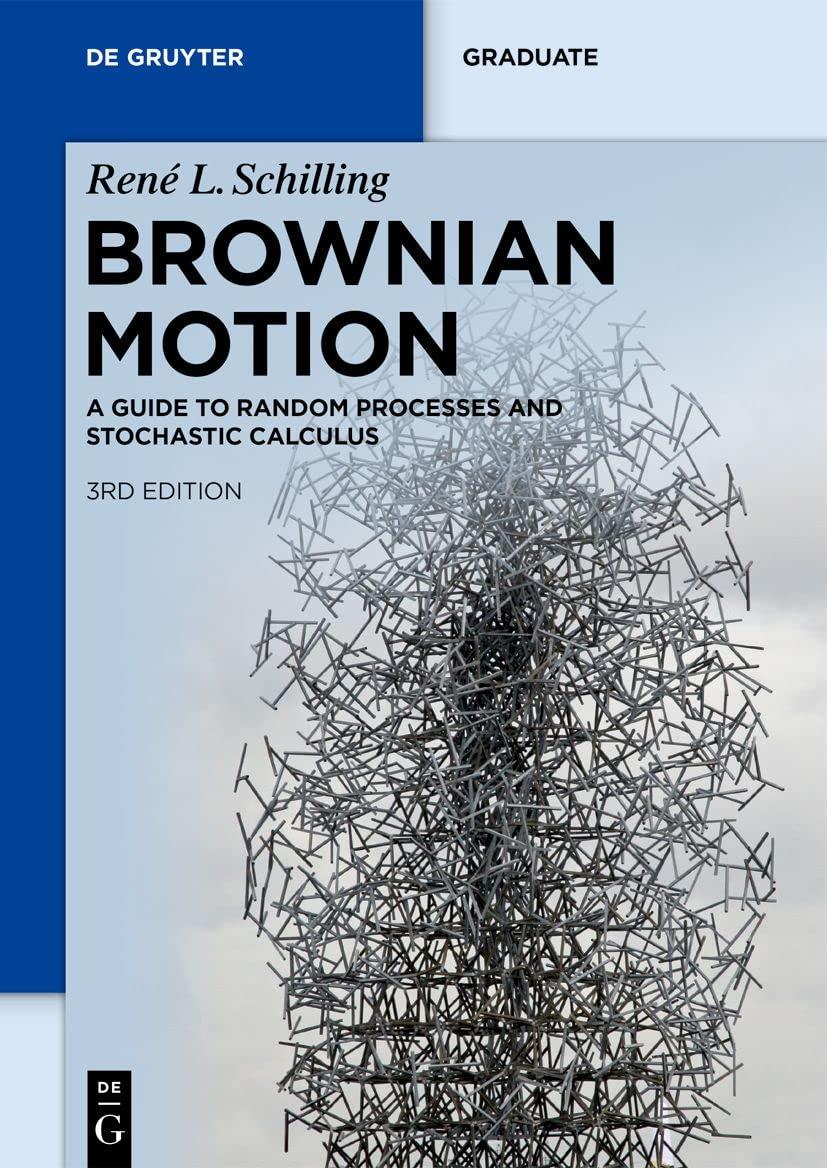Let ((B(t))_{t in[0,1]}) be a ({B M^{1}}^{1}) and set (t_{k}=k / 2^{n}) for (k=0,1, ldots, 2^{n}) and
Question:
Let \((B(t))_{t \in[0,1]}\) be a \({B M^{1}}^{1}\) and set \(t_{k}=k / 2^{n}\) for \(k=0,1, \ldots, 2^{n}\) and \(\Delta t=2^{-n}\). Consider the difference equation
\[\Delta X_{n}\left(t_{k}ight)=-\frac{1}{2} X_{n}\left(t_{k}ight) \Delta t+\Delta B\left(t_{k}ight), \quad X_{n}(0)=A,\]
where \(\Delta X_{n}\left(t_{k}ight)=X_{n}\left(t_{k}+\Delta tight)-X_{n}\left(t_{k}ight)\) and \(\Delta B\left(t_{k}ight)=B\left(t_{k}+\Delta tight)-B\left(t_{k}ight)\) for \(0 \leqslant k \leqslant 2^{n}-1\) and \(A \sim \mathrm{N}(0,1)\) is independent of \(\left(B_{t}ight)_{t \in[0,1]}\).
a) Find an explicit formula for \(X_{n}\left(t_{k}ight)\), determine the distribution of \(X_{n}(1 / 2)\) and the asymptotic distribution as \(n ightarrow \infty\).
b) Letting \(n ightarrow \infty\) turns the difference equation into the SDE \[d X(t)=-\frac{1}{2} X(t) d t+d B(t), \quad X(0)=A\]
Solve this SDE and determine the distribution of \(X(1 / 2)\) as well as the correlation function \(C(s, t)=\mathbb{E} X_{s} X_{t}, s, t \in[0,1]\).
Step by Step Answer:

Brownian Motion A Guide To Random Processes And Stochastic Calculus De Gruyter Textbook
ISBN: 9783110741254
3rd Edition
Authors: René L. Schilling, Björn Böttcher





